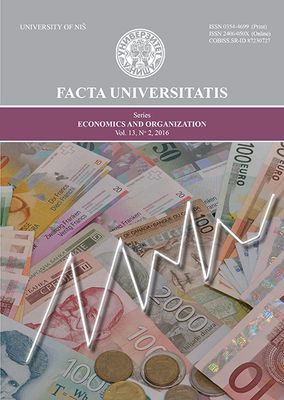CORPORATE GOVERNANCE MECHANISMS EFFECTIVENESS: THE CASE OF TRANSITION COUNTRIES
CORPORATE GOVERNANCE MECHANISMS EFFECTIVENESS: THE CASE OF TRANSITION COUNTRIES
Author(s): Verica Babić, Jelena Nikolić, Milena StanisavljevićSubject(s): National Economy, Post-Communist Transformation
Published by: Универзитет у Нишу
Keywords: transition countries; privatization; corporate governance mechanisms; ownership concentration; board of directors
Summary/Abstract: Ever since ownership and management were separated, corporate governance emerged as an essential institution of market economy. Based on this statement, several corporate governance mechanisms have been extensively researched. Developed and transition countries, according to the differences that determine the corporate governance model, which refer to the historical and cultural heritage of countries, socio-economic conditions, legal/institutional framework and ownership structure, apply various corporate control mechanisms. Since market institutions are missing in transition countries, and institutional framework is insufficiently developed, these countries must develop appropriate corporate governance model, as well as corporate governance mechanisms. Due to these mentioned features, the research topic is to analyze effectiveness of corporate governance mechanisms in selected transition countries with common socio-economic environment. Special attention is given to the problems of corporate governance mechanisms improvement and possibilities of overcoming them.
Journal: FACTA UNIVERSITATIS - Economics and Organization
- Issue Year: 13/2016
- Issue No: 2
- Page Range: 161-175
- Page Count: 15
- Language: English

